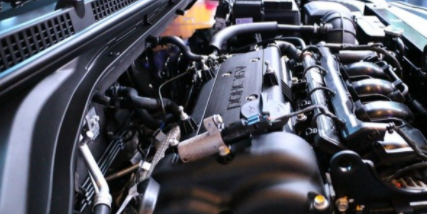Possible Reasons for your Vehicle's Engine Failure!

The engine is the most important part of any vehicle and is often a car health parameter. As the heart of any functioning car, there are several aspects to consider. One may encounter overheating, poor lubrication, inadequate fuel and air compression, and blocked radiators, among the most prominent problems. The engine is a complex part; hence there may be more issues than one can identify!
The Oil Pump
Failure of oil pumps may cause serious problems and are often dangerous considering any vehicle engine’s lifespan. One should always ensure using the correct oil (viscosity) to make the flow smooth.
Debris and Oil Deposits
Contrary to diesel engines, ignition systems on petrol-driven engines are external, meaning that an electrical spark from the spark plug is used to combust the compressed fuel-air mixture. The spark is created from the high voltage produced by the ignition coil and leaps between the electrodes. The released heat increases the temperature, rapidly building up pressure in the cylinder and forcing the piston downwards. The movement is transferred via a connecting rod to the crankshaft that drives the vehicle. Oil deposits and debris can potentially alter the working in the combustion chambers.
Poor Compression
The main reason for poor air compression is broken valve seals or the possibility of holes within cylinders. Overused piston rings are also possible because they force air to leak, resulting in poor compression.
Blocked Radiators
Engine coolants need maintenance. If they aren’t cleaned regularly, they can get filled with unwanted deposits causing your engine to overheat!
Overheating
An overheated engine does not fix itself, so ignoring the warning signs will not help. Start with a complete vehicle inspection and travel with a spare water bottle if you need to refill the water tank. No such incident comes with a pre-warning, so being prepared and knowing how to handle such situations is a must!
Before the engine overheats to failure, it sends out warning signs, and reading them correctly, can save your engine from permanent damage. The signs usually include:
- The engine temperature gauge on your dashboard spiking to ‘H’ or Red.
- Smoke or steam coming from the car hood.
- A leaking coolant or an unusual burnt smell.
If that’s the case, check for the water pump and add coolant. Carefully restart the engine, and do not panic while you are at it. If the damage is beyond repair, call the nearest repair shop and get immediate help.
Avoid opening the hood immediately, as it can put you at risk of burns or injuries from the spewing hot smoke and steam accumulating all this time.
Engine overheating is not usually the cause but a result of various underlying issues. Most of these issues arise when the driver is careless!
As the temperature begins to drop, your car engine is likely to take more time to start, and you’ll see hard starting or engine misfiring along with a decreased fuel efficiency. Once you get this fixed, you will see your engine perform better and have a good time on the road!
Please find out more about your car engine health by visiting us at LeSueur Car Company.
Keep Moving!